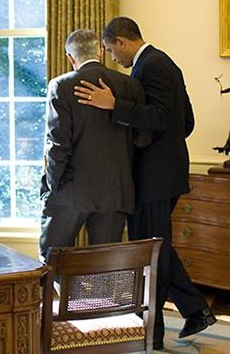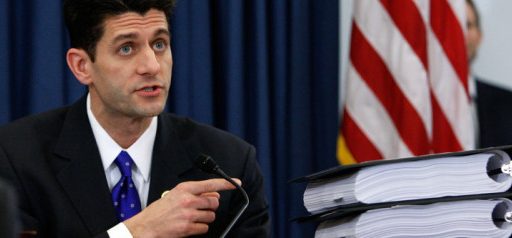Health Care: All Over But The Secrecy
 David Lightman and William Douglas of the McClatchy Newspapers syndicate point out that the real action on the health care bill will take place in the murky world of conference committees, which–like many other things on the Hill–don’t really work the way your father’s (or, for that matter, your) American government textbook says they do:
David Lightman and William Douglas of the McClatchy Newspapers syndicate point out that the real action on the health care bill will take place in the murky world of conference committees, which–like many other things on the Hill–don’t really work the way your father’s (or, for that matter, your) American government textbook says they do:
To most Americans, the conference process is an enigma, rarely taught in history or civics lessons. Even the “School House Rock” classic animated step-by-step primer, “I’m Just a Bill,” skipped over the conference committee’s role.
On Capitol Hill, however, it’s a tradition steeped in late-night, closed-door deals and howls of protest from the frozen-out minority party.
“Probably the best part of the sausage-making process is the least understood and the most important,” said former House Budget Committee Chairman Jim Nussle.
Nussle, an Iowa Republican and a former director of the White House Office of Management and Budget, said it isn’t unusual for a chairman to call one official, open a conference meeting with all Democratic and Republican appointees present and then quickly adjourn the session.
The conference then usually goes behind closed doors, oftentimes without telling the minority conferees — in health care’s case, Republicans — when or where the meetings are being held, Nussle said.
Those commentators on both sides of the political spectrum who have lamented the rise of the “60 vote Senate” (typified today by Democratic-leaning commentators like James Fallows, and of course the president himself as noted by Dodd Harris earlier today; of course, not so long ago a lot of Republicans were making very similar noises) have been strangely silent about the thorough perversion of the lawmaking process in the United States into a system where debate–and even the bills themselves, which can be amended beyond recognition by shadow “task forces” and conference committees that don’t even bother with the pretense of debating the bill in public–has become nothing but kabuki theater until the very end of the process. The more light that is shed on this fundamental change by journalists and academics alike, the better.






Has not this been made more of a problem with the constant usage of the threat of the filibuster? If you have to have 60 votes to get anything through the Senate, you are going to get pretty mangled bills IMHO.
Steve
It would seem to me that both the increased use of the filibuster and the end-runs around committees (both the standing committees and conferences) are probably related to a common root cause, the increased polarization between (and ideological cohesion within) the two major parties in Washington since the mid-1970s, rather than one causing the other.